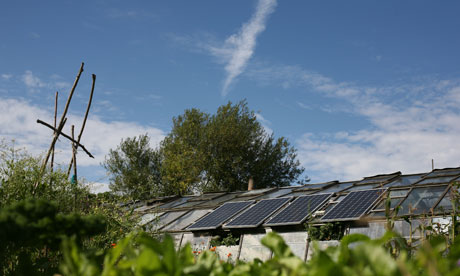The criminalising of squatters in Britain is part of a Europe-wide backlash. But with at least 10% of the world population squatting, can they really be a menace to society?
On 26 September, Alex Haigh became the first person to be jailed under section 144 of the Legal Aid, Sentencing and Punishment of Offenders Act. His crime was one of which countless thousands of people could now be guilty: squatting. A 21-year-old from Plymouth, Haigh was arrested for living in a house in Pimlico that had been empty for over a year. He had come to London seeking work as a bricklayer; now he has a criminal record.When section 144, which makes it an offence to squat in a residential building in England and Wales, came into effect at the beginning of September, many people agreed with it, including 52% of Guardian readers in an online poll. But is squatting really a menace or a burden to society? Might it even be beneficial? And when we talk about squatting, what do we really mean anyway? Those questions are raised again this week, albeit belatedly, by a surprising new adjudicator: Richard Madeley. In Madeley Meets The Squatters, the former breakfast TV maestro turns investigative reporter, visiting squatters and anti-squatters alike, and bringing more nuance to the subject than the current administration did when it drafted section 144.
Grant Shapps, co-chair of the Conservative party, has a very clear idea of what squatters are: they are people who come and steal your home while you are on holiday. Justifying the law change in this paper, Shapps cited some well-publicised recent incidents of homes stolen by squatters, including that of Oliver Cockerell, a Harley Street doctor, which was occupied during renovation work while his wife was pregnant. Dr Cockerell blamed "gangs of anarchists and eastern Europeans". Shapps went on to describe squats as "death traps of despair" and spoke of squatters' lives as "characterised by gloom and anguish". "The gentle and romantic image of communal harmony and a counter-cultural lifestyle is an illusion," he declared.
These negative stories have dismayed many long-term squatters. Take Joe Blake and Reuben Taylor, two squatters in their 20s who live in an abandoned plant nursery near Heathrow airport. Their set-up, Grow Heathrow, is far closer to Shapps' illusory harmonious community than a death trap of despair. In fact, you could call it a squat-topia. Blake and Taylor's group – now numbering 17 or so – cleared their site of 30 tonnes of waste and repaired derelict greenhouses to live in. They grow organic vegetables, which they sell via the local grocer. They hold bicycle workshops, arts and crafts sessions and gardening workshops for the local community. They even do the gardening for the local constituency office. They have displaced no one and the neighbourhood wants them there, since they campaign against the proposed third runway.
It's a frugal existence, mind you. The only electricity is via a wind turbine and solar panels – just enough for music and the internet. It gets bitterly cold in winter. The "shower" is a Heath Robinson-like contraption consisting of a water butt on top of some scaffolding, with pipes leading to an old radiator with a fire underneath it. "We're building a roof for it so we don't get rained on while we're showering," says Blake. It would be very difficult to paint these squatters as a burden to society. They don't even have a carbon footprint.

"They completely overplayed it," says Blake over a cup of tea in Grow Heathrow's greenhouse kitchen. Shapps and co whipped up a moral panic, aided by sections of the media, then section 144 was "sneaked" through parliament during the bill's last three days, he says. "Squatters aren't very well represented in the media, so you just hear these horror stories in the papers. But most squatters want to stay somewhere for a long time. They don't want to take someone else's home."
"What you don't get is the story about the pregnant squatter who's kicked out (95) The Guardian on Facebook

No comments:
Post a Comment